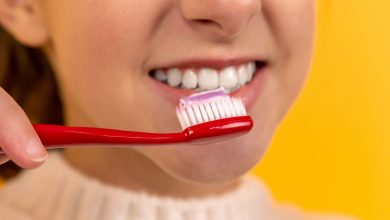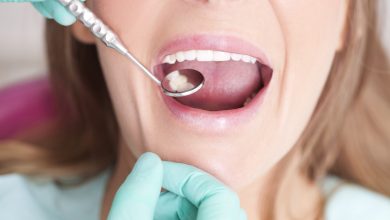How to Prevent Tooth Decay? 8 Proven Ways to Keep Your Smile Healthy

To prevent tooth decay, it’s important to maintain good oral hygiene and limit sugary food and drink intake. Regular brushing, flossing, using fluoride toothpaste, and visiting the dentist are key.
By following these steps, you can effectively prevent tooth decay and maintain a healthy smile. Tooth decay is a common dental problem that occurs when plaque, a sticky film of bacteria, builds up on your teeth and produces acids that erode the tooth enamel.
This can lead to cavities, toothaches, and even tooth loss if left untreated. Fortunately, there are several preventive measures you can take to avoid tooth decay and keep your teeth strong and healthy.
Brushing Techniques For Optimal Dental Health
Choosing the Right Toothbrush
When it comes to oral hygiene, selecting the appropriate toothbrush is paramount. Opt for a soft-bristled brush since it effectively removes plaque and debris while being gentle on your gums. Additionally, consider the size of the toothbrush head; it should comfortably fit in your mouth and reach all areas of your teeth.
Proper Brushing Technique
In terms of brushing technique, it is essential to adopt the right approach. Hold your toothbrush at a 45-degree angle to your gums and brush back and forth using short, gentle strokes. Ensure that you cover the outer, inner, and chewing surfaces of all your teeth. Don’t forget to brush your tongue gently to eliminate bacteria and freshen your breath.
The Correct Duration for Brushing
Brushing your teeth for an adequate duration is equally important. Aim for a minimum of two minutes each time you brush. Split your mouth into quadrants and dedicate approximately 30 seconds to each section. To better manage time, you can use a timer or an electric toothbrush with built-in timers that notify when the two-minute mark is reached.
Adopting Effective Flossing Habits
Regular flossing plays a crucial role in preventing tooth decay and maintaining good oral hygiene. Flossing helps remove plaque and food particles that brushing alone cannot reach, reducing the risk of cavities and gum disease.
When it comes to selecting dental floss, there are several types available to suit individual preferences and needs. Waxed floss is effective in sliding between teeth, while unwaxed floss is better for those with tightly spaced teeth. Other options include dental tape and floss picks, which can be convenient for people on the go.
Equally important as the type of floss, correct flossing technique ensures optimal results. Start by taking a proper length of floss, around 18 inches, and wind it around your middle fingers. Hold the floss tightly between your thumbs and index fingers, gently guiding it between each tooth, moving it back and forth in a C-shape motion. Be sure to reach below the gumline and repeat with a clean section of floss for each tooth.
By adopting effective flossing habits and making it a part of your daily oral care routine, you can significantly reduce the risk of tooth decay and maintain a healthy smile.
Eat For Dental Health
Eat for Dental Health
Foods That Promote Healthy Teeth and Gums:
Eating a well-balanced diet is crucial for maintaining good dental health. Incorporating the following foods into your diet can promote strong teeth and gums:
- Calcium-rich foods: Milk, cheese, yogurt, and leafy greens are excellent sources of calcium, which helps to strengthen teeth.
- Vitamin C-rich fruits and vegetables: Citrus fruits, strawberries, and bell peppers are packed with vitamin C, which is essential for gum health.
- Fiber-rich foods: Crunchy fruits and vegetables, whole grains, and nuts stimulate saliva production, which helps to wash away harmful bacteria.
Foods to Avoid for Optimal Dental Health:
While certain foods are beneficial for dental health, some should be limited or avoided altogether:
- Sugary and acidic foods: Candy, soda, and citrus fruits can contribute to tooth decay and enamel erosion.
- Sticky and chewy foods: Caramels, dried fruits, and chewy candies can get stuck in the crevices of teeth and promote cavities.
- Highly processed snacks: Chips, crackers, and cookies often contain refined carbohydrates that can lead to tooth decay.
Nutritional Tips for Strong Teeth:
In addition to choosing the right foods, practicing good dental hygiene is essential. Remember to:
- Brush your teeth thoroughly twice a day.
- Floss daily to remove plaque between teeth.
- Limit snacking between meals.
- Visit your dentist regularly for check-ups and cleanings.
Regular Dental Check-ups
Regular dental check-ups are vital in preventing tooth decay. It is recommended to visit a dentist regularly to maintain optimal oral health. Dental visits play a crucial role in identifying and treating dental issues early on, preventing them from worsening and causing further damage. Regular dental check-ups are usually recommended twice a year, but the frequency may vary depending on individual needs and risk factors. These check-ups allow the dentist to assess the overall oral health, identify signs of decay, and provide professional dental cleaning.
Professional dental cleaning has numerous benefits in preventing tooth decay. Dental hygienists use specialized tools to remove plaque and tartar buildup, reaching areas that regular brushing and flossing might miss. This thorough cleaning helps prevent the formation of cavities and reduces the risk of gum disease. Additionally, dentists can offer guidance on proper oral hygiene techniques, recommend personalized treatments, and provide preventive measures such as fluoride treatments or dental sealants.
Using Fluoride For Strong Teeth
Fluoride plays a crucial role in preventing tooth decay and ensuring strong and healthy teeth. It is a natural mineral that helps to strengthen the tooth enamel and make it more resistant to acid attacks from bacteria and sugary foods. The most common way to incorporate fluoride into your dental routine is through the use of fluoride toothpaste and mouthwash. These products contain fluoride in the form of sodium fluoride, sodium monofluorophosphate, or stannous fluoride. By regularly brushing and rinsing with fluoride products, you can provide an extra layer of protection to your teeth.
However, it is important to note that the level of fluoride in toothpaste and mouthwash is relatively low compared to professional fluoride treatments. Dentists may apply high concentration fluoride gels, foams, or varnishes to your teeth to provide a more intense fluoride treatment. These professional treatments can help to repair weakened tooth enamel and greatly reduce the risk of tooth decay. It is recommended to consult with your dentist to determine if professional fluoride treatments are necessary for your oral health.
Limiting Sugar Intake For Dental Well-being
Limiting sugar intake is crucial for maintaining dental well-being and preventing tooth decay. The relationship between sugar and tooth decay is well-established. Sugar acts as fuel for the harmful bacteria in our mouths, leading to the production of acids that erode tooth enamel.
It’s important to be aware of hidden sources of sugar in our food and drinks. Many processed foods, such as sauces, condiments, and even salad dressings, contain added sugars. Similarly, sugary drinks like soda, fruit juices, and energy drinks can be major contributors to tooth decay.
To promote dental health, it’s beneficial to explore sugar alternatives. Natural sweeteners like stevia and monk fruit can provide sweetness without the harmful effects of sugar. Additionally, choosing whole fruits and incorporating them into your diet is a great way to satisfy your sweet tooth while also benefiting from essential vitamins and minerals.
By limiting sugar intake and being conscious of hidden sources of sugar, we can take proactive steps towards preventing tooth decay and maintaining optimal dental health.
Practice Good Oral Hygiene Habits
Keeping your teeth and gums clean is essential in preventing tooth decay. One often overlooked aspect of oral hygiene is tongue cleaning. Many harmful bacteria reside on the surface of the tongue, contributing to bad breath and tooth decay. A gentle tongue scraper or the back of your toothbrush can be used to effectively clean the tongue.
Mouthwash and rinsing after brushing is another valuable practice. An antibacterial mouthwash can help kill the bacteria that cause tooth decay. Rinsing with water after meals can also assist in removing food particles and reducing the acidity levels in the mouth.
Regularly replacing your dental equipment is crucial for maintaining good oral health. Toothbrushes, for example, wear out over time, resulting in less effective cleaning. It is recommended to replace your toothbrush every three to four months. Additionally, keeping an eye on the condition of your oral hygiene tools is important. Cracked or frayed toothbrush bristles can be ineffective in removing plaque and bacteria.

Credit: www.perkinsdentalbaltimore.com
Incorporating Mouth-friendly Habits Into Your Lifestyle
Incorporating mouth-friendly habits into your lifestyle can significantly help in preventing tooth decay. One such habit is quitting smoking, as it has detrimental effects on oral health. Smoking not only stains teeth but also increases the risk of gum disease and oral cancer. It is important to manage stress levels as well, as stress can contribute to teeth grinding and jaw clenching, leading to dental problems. Taking steps to reduce stress, such as practicing relaxation techniques or engaging in physical activities, can help maintain dental well-being. Moreover, it is crucial to be mindful of the impact of alcohol on dental health. Excessive alcohol consumption can lead to dry mouth, a condition that promotes tooth decay. Limiting alcohol intake and maintaining good oral hygiene practices can help in preventing oral health issues caused by alcohol.
Frequently Asked Questions On How To Prevent Tooth Decay?
How Can I Stop My Teeth From Decaying?
To prevent tooth decay: 1. Brush your teeth twice daily with fluoride toothpaste. 2. Floss daily to remove plaque and food particles from between teeth. 3. Limit sugary snacks and drinks, opt for water or sugar-free alternatives. 4. Visit your dentist regularly for check-ups and cleanings.
5. Consider dental sealants for added protection.
Can You Stop Tooth Decay When It Starts?
Yes, tooth decay can be stopped when it starts. Early detection and proper dental care can prevent further decay and save the affected tooth. Regular visits to the dentist, brushing and flossing daily, and a healthy diet can help maintain good oral health.
How Can I Prevent Tooth Decay Naturally?
To prevent tooth decay naturally, follow these steps: brush and floss daily, cut down on sugary foods and drinks, eat a balanced diet with plenty of fruits and vegetables, use fluoride toothpaste, and visit your dentist regularly.
Can Tooth Decay Be Saved?
Tooth decay can be saved through proper dental treatment such as fillings or root canals, depending on the extent of damage. Timely intervention and regular dental check-ups can prevent further decay and save the tooth.
Conclusion
To maintain optimal oral health and prevent tooth decay, it is essential to adopt good oral hygiene practices. Brush your teeth twice daily with fluoride toothpaste, ensuring proper technique and covering all surfaces. Don’t forget to floss daily and limit sugary foods and drinks.
Regular visits to the dentist for check-ups and cleanings are vital. By implementing these simple yet effective habits, you can keep your smile healthy and cavity-free for years to come. Remember, prevention is the key to lifelong dental wellness.





